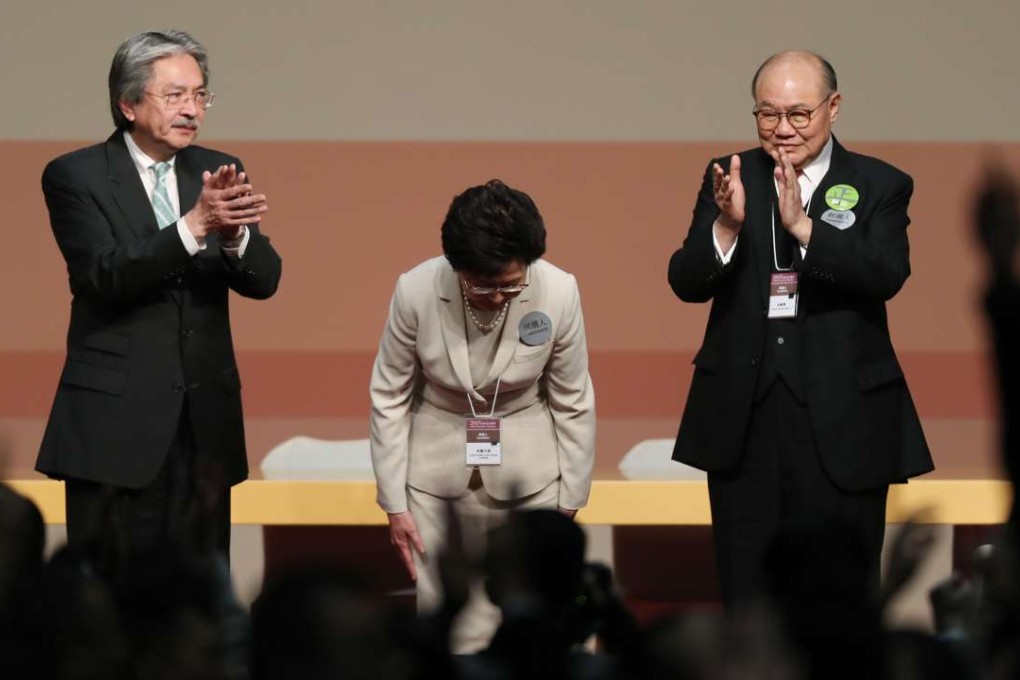Scholars say Beijing should now play bigger role in helping to mend social divide in Hong Kong
Mainland professor calls for greater respect of Hong Kong’s autonomy and laws following Carrie Lam’s victory

Beijing should now play a bigger role in helping to mend the social divide in Hong Kong, following the election of Carrie Lam Cheng Yuet-ngor, mainland scholars have said.
The election on Sunday was a race closely watched by Beijing – the official news wire Xinhua reported Lam’s victory before Hong Kong’s official announcement of the result, saying she had already received more than 600 votes. A speech by the spokesperson of Hong Kong and Macau Affairs Office was delivered in the early afternoon, congratulating Lam and praising her for meeting Beijing’s standards set for the city’s next leader; patriotism, trust by the central government, capability to govern, and support in the city.
Despite Lam’s victory – winning close to two thirds of all votes from the 1,200-member election committee – it is agreed by many that mending the city’s political divide would be a thorny issue for the next leader.
Immediately after Lam’s victory, she promised to “heal the social divide” and “unite our society to move forward”, an arduous task which some mainland legal experts argue could be shared by the central government.
The central government could help sooth anti-Beijing sentiment in the city by eliminating non-official involvement in Hong Kong, Tian Feilong, an associate law professor with Beihang University in Beijing, said.
“Beijing should pay more respect to the city’s autonomy by using only legal means to govern the city, like having the National People’s Congress to interpret the Basic Law, and avoid law enforcement similar to the case of Lee Po,” Tian said.